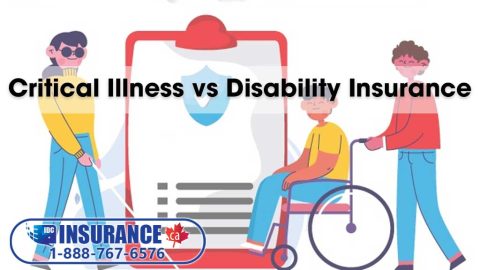As a life insurance broker, I was recently interested in the prospect of providing pre-need funeral planning as an option for my clients. Before doing this, of course, I wanted to know – is it worth it?
Doing my due diligence, I spent several months working with a local provider of pre-need funeral planning. During this time, I personally went through the process to evaluate whether IDC should partner with them and offer their services to our clients. After this time, my feelings became clear.
Deliberation
I eventually decided that pre-need funeral planning is not in the best interest of our clients. Although pre-need funeral planning is an excellent idea, it is a very simple task to accomplish without the need of a commission-based councilor. Instead, find the forms below that will help you work through the process yourself.
My Experience With Pre-need Funeral Plans
The process had several parts to it. First, a Final Arrangements Consultant visited my wife and I to go over what we want to happen when we pass. This discussion was of value, as both my wife and I had different ideas of what would happen. Through this, we agreed on a common approach that was a compromise.
We then got a quote for the services of a funeral director, urn, and church service, including a gathering after the service. It also included a policy to return the body if death occurs outside of our home city, as well as a package to help the executor complete all the paperwork and close all credit cards. The total package quote was $4,012 for me and $3,919 for my wife.
All in all, the prices were reasonable and the information was excellent. However, it is likely that if we had access to the proper forms to begin with, we could have done it all ourselves. Granted, we would not have been able to guarantee the costs for the urn and funeral director’s services, but much of what we want will be at market price when we pass anyway.
Another issue is that if your family members decide to change anything, then the price guarantees do not apply.
The kicker is that once we had chosen our plan, there was pressure to purchase an insurance policy to cover this cost of about $4,000 each. Our premiums were $58 and $47 respectively for a total of $105 for ten years. In addition, we had to answer a number of qualifying questions with a “no,” otherwise the coverage would not start for two years although we were paying premiums for those years.
The questions were:
- Is the applicant currently confined to a hospital or nursing home, or has he/she ever been diagnosed with having a terminal illness, Alzheimer’s disease, tested HIV positive, or been treated for AIDS or HIV related illnesses or health conditions?
- During the past five years, has the applicant ever been treated for, or diagnosed as having:
- disease or disorder of the heart, circulatory or vascular systems, stroke or any cancer?
- disease or disorder of the lungs, liver or kidney; alcoholism or drug abuse?
- brain disorder or tumor, seizure, paralysis, psychosis, lupus or multiple sclerosis?
- blood disease or disorder, or both high blood pressure and diabetes together?
For many seniors, these are not easy questions to pass – so they end up with a two-year waiting period or get their application rated or declined.
The Final Arrangements Consultant is paid a commission for the sale of products like life insurance, world travel insurance, and an executor kit. They do nothing if you stop at the completion of the form. In many cases, these policies have higher premiums than traditional life insurance policies.
Finally, looking at the return of the body in the event of death, most travel policies include this feature (or it can be added inexpensively), so there is no need to purchase it at this time. Although the executor kit can be a good investment for people with a large number of bank accounts, it is not necessary for many seniors who have few cards and financial obligations.
Recommendation
I recommend the following:
- Go over the forms below with your spouse.
- Make sure you understand each other’s wishes after you pass.
- Understand your option to purchase a standard life insurance policy to cover the costs.
- Research the alternative funeral services and make the final arrangements using the documents below as a guide.
The point is to do the minimal amount of work yourselves now, and have it available for your family members when you pass. The key is to have conversations so that your loved ones know your wishes. In most cases your wishes will cost a lot less than would be spent without this direction by your loved ones when the inevitable happens. They tend to go beyond what you would really want due to the grief and pressure at the time, and the funeral operators are counting on that.










